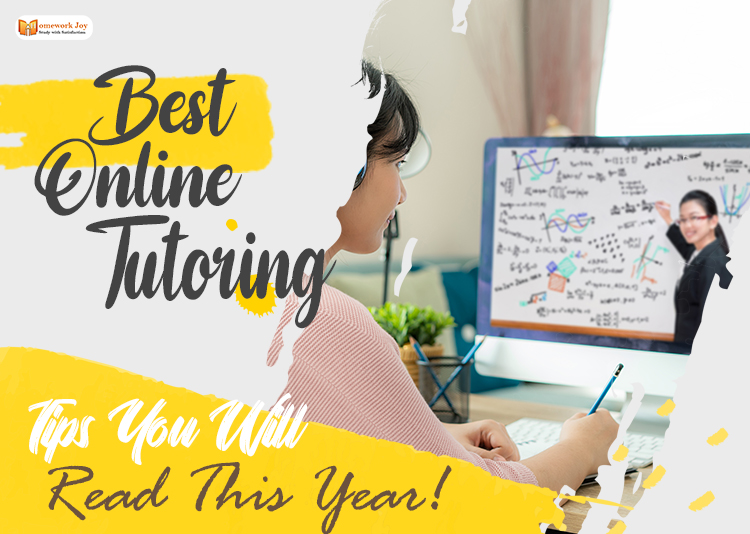Online tutoring is increasing in popularity every day, especially in 2022! Students need to continue their studies during the flu epidemic. But online tutoring makes it easier and more convenient for everybody.
Online tutoring can be quite challenging, as my tutors would agree, compared to being a teacher in an in-person classroom. As a result, not everyone is suited to be a successful online tutor. What makes an online tutor effective? Let’s examine the qualities that make a good tutor.
Request feedback
Request feedback from your students regularly. Ask them what improvements can be made to the class to make it more beneficial to them. You can ask them for feedback on the way you teach, the type of materials you use, the pace, and more.
Feedback is invaluable to online tutors. Your tutoring skills will be strengthened and you will be able to address concerns, adjust your teaching style and materials as well as gain confidence.
It all depends on what kind of feedback you want to assemble. The student could ask to send you an email, you could ask them to contact you, or you could send out a survey at the end of the lesson.
Expert in technology
To be an online tutor, you should be able to use a computer and the internet reasonably well. Due to the use of online platforms such as Zoom, a tutor and student will interact online.
It is therefore important for tutors to be familiar with and able to use such platforms properly. The familiarization process involves sharing the screen, uploading content, using the whiteboard, and troubleshooting issues with the network or audio.
A working computer/laptop and a stable internet connection are the most crucial components of all of this. Your tutor provides the remaining technical requirements via computer or laptop.
Tutors should be interactive
Instructiveness is one of the most important characteristics of an online tutor. Online classrooms differ from traditional classrooms in that the tutor may not be able to interact physically with the students.
This makes tutoring more challenging and affects the level of interaction between tutor and student. While a tutor must be capable of using different methods to suit the student’s needs as well as improving the student’s interaction level.
Tutors are responsible for recognizing and responding to students with low self-efficacy or disengagement. A lack of effort, a diminished level of communication, or frustration are often signs that one is not engaging the tutor.
As a result, the lesson will also be effective since the tutor should have a variety of strategies to re-engage. It helps the students and improves the interaction between the two parties.
Experience
To be effective in tutoring and one-on-one lessons, you must know pedagogical content. You must know common misconceptions, common weak spots, and how to diagnose what holds a student back. By assessing and identifying a student’s level, a tutor can adapt his/her pace, lesson plan, and content accordingly.
Teachers have expertise when it comes to teaching. Tutoring is not about providing lengthy explanations, lecturing students, or having them figure out the answer on their own. With expertise, a tutor should be able to explain concepts clearly, concisely, and precisely.
Considering suggestions
Tutors should always keep in mind we are working with children of different age groups. We should be understanding towards the children in our care.
The tutor must be gentle with the student since they will not be physically teaching them. Since we will not be physically teaching them, it will be very difficult to comprehend their mentality.
Tutors’ communication style, their tone of voice, and their ability to adhere to the safeguarding framework are considered. Students or parents need to give tutors feedback about how they’re doing so they can continually improve.
Change-adaptiveness
If a tutor can observe changes or progress over time, or understand where a student may struggle, he or she can help the students. Tutors must be able to identify students’ learning gaps and areas for improvement using a variety of assessment techniques.
Tutors can adapt their one-to-one sessions since students may have differing levels/age groups. It means they should be able to adjust. An assessment can allow a tutor to recognize a student’s strengths and weaknesses.
A tutor should also be able to understand when the pace of the lesson needs to be adjusted. Students may personalize the lesson and the tutor should be able to adjust it accordingly.
Collaboration
When students have problems to solve and have discussions in two directions, the learning environment becomes more active in this way.
Tutors do not direct or lead their students to the answer, but rather guide them step by step. It allows them to identify their mistakes and keeps them engaged throughout the lesson.
To be successful in online tutoring, a tutor must be able to assign the necessary homework or assignments to students and check them quickly.
It is only a matter of time before you succeed in using these tips. As an online tutor or teacher, you should serve your students online in the same way you would in person.
For any types of online tutoring help please visit our website Homework Joy.
